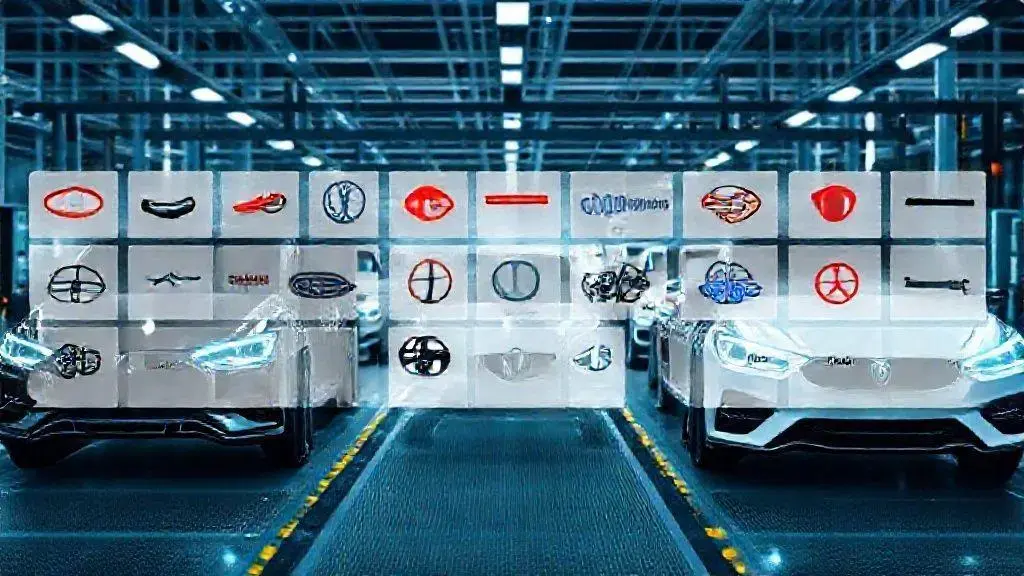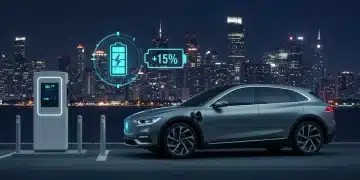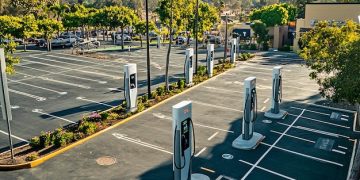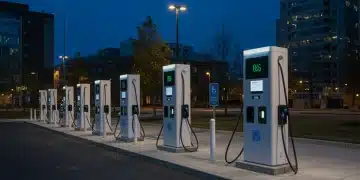Electric vehicle updates on market growth

Electric vehicle updates on market growth predict a substantial increase in adoption and innovation, driven by advancements in battery technology, expanding charging infrastructure, and heightened consumer awareness of environmental impacts.
Electric vehicles are taking the market by storm, and electric vehicle updates on market growth are crucial for understanding this shift. Curious about what’s driving this change and where it’s heading? Let’s dive in!
current market landscape of electric vehicles
The current market landscape of electric vehicles is evolving rapidly, driven by technological advancements and shifting consumer preferences. With governments incentivizing the transition to greener alternatives, more drivers are choosing electric cars over traditional gasoline vehicles.
As the demand for electric vehicles grows, manufacturers are responding by expanding their offerings. A variety of models, from compact cars to SUVs, are now available, catering to different needs and preferences.
Key Market Trends
Some of the most significant trends shaping the electric vehicle market include:
- Increasing investment in charging infrastructure
- Improvements in battery technology
- Government regulations and incentives
- Growing consumer awareness about sustainability
More consumers are prioritizing eco-friendly choices in their daily lives. This shift results in greater interest in electric vehicles and the benefits they offer. The growing variety of models means that there’s likely an electric vehicle for everyone.
Challenges to Overcome
Despite the positive outlook, the market faces challenges. One major issue is the availability of charging stations. Many potential buyers worry about being stranded without access to a charger. Additionally, the initial cost of electric vehicles can be higher than conventional vehicles, although this is expected to change as production scales and technologies improve.
While manufacturers continue to innovate and overcome these barriers, awareness about electric vehicle advantages is crucial. Emphasizing reduced emissions, lower operating costs, and government incentives can help potential buyers feel more confident in their choices.
key players driving market growth

The key players driving market growth in the electric vehicle sector are crucial to its rapid expansion. Major manufacturers are innovating and competing to meet the increasing demand for electric vehicles.
Leading companies such as Tesla, Ford, and Volkswagen have made significant investments in electric vehicle technology. These brands are not only producing electric cars but also enhancing their range and performance. As these companies innovate, they help shape consumer preferences and set industry standards.
Top Manufacturers to Watch
Here are some of the notable players in the electric vehicle market:
- Tesla: Known for its electric sedans and SUVs, Tesla sets the benchmark in performance and technology.
- Ford: With models like the Mustang Mach-E, Ford is making a strong push into the electric SUV market.
- Volkswagen: Committed to electrification, VW aims to offer many electric models in the coming years.
- General Motors: Expanding its electric portfolio, GM is focusing on sustainability with new electric models.
These manufacturers are investing heavily in research and development to enhance battery life, reduce charging times, and improve vehicle affordability. Their efforts are also directed at expanding charging networks, which is essential for consumer confidence.
Emerging Players and Startups
Besides major automakers, several startups are also shaking up the market. Companies like Rivian and Lucid Motors are capturing attention with unique vehicles that focus on luxury and adventure. They aim to offer alternatives to traditional electric vehicles and target specific niches in the market.
The competition between these key players is driving innovation, reducing prices, and increasing consumer options. As more companies recognize the potential of electric vehicles, we can expect significant growth in this sector.
challenges facing the electric vehicle sector
The challenges facing the electric vehicle sector are significant but not insurmountable. As the demand for electric vehicles rises, several obstacles need to be addressed for this market to reach its full potential.
One of the primary issues is the accessibility of charging infrastructure. Many potential buyers worry about where to charge their vehicles, especially during long trips. Expanding the network of charging stations is essential to ease these concerns.
Battery Technology and Range
Another major challenge relates to battery technology. The driving range of electric vehicles continues to improve, yet concerns about battery life and efficiency remain. Consumer hesitation often stems from the fear of running out of charge.
- High costs of battery production limit affordability.
- Recycling and disposal of used batteries raise environmental questions.
- Improving charging speeds is needed for greater convenience.
Alongside these technological barriers, the initial cost of electric vehicles can deter buyers. Despite lower operating costs over time, many electric models still come with a higher price tag than their gasoline counterparts.
Consumer Awareness and Perception
Consumer perception also plays a significant role. Many people are still unaware of the benefits of electric vehicles. Misconceptions about performance and reliability can keep them from considering an electric option.
Furthermore, market competition is fierce, with traditional automakers ramping up production of hybrids and fuel-efficient vehicles. This competition creates additional pressure for electric vehicle manufacturers to continuously innovate and meet consumer needs. Overcoming these challenges will require collaboration among manufacturers, governments, and infrastructure providers.
future predictions for electric vehicle adoption

The future predictions for electric vehicle adoption suggest an exciting landscape for the auto industry. Experts forecast significant growth in sales and production over the next decade. As technology continues to advance, electric vehicles are expected to become more accessible and appealing to consumers.
Many analysts predict that by 2030, electric vehicles will account for a major share of the global automotive market. The increasing awareness of climate change and environmental issues is pushing consumers toward sustainable options. With more governments creating supportive policies, electric vehicle adoption is likely to accelerate.
Technological Advancements
Innovations in battery technology will be a key driver of electric vehicle growth. Batteries are becoming cheaper and more efficient, allowing for longer ranges and shorter charging times. These improvements will enhance consumer confidence and reduce range anxiety.
- Solid-state batteries offer increased capacity and safety.
- Faster charging solutions are being developed to reduce wait times.
- Vehicle-to-grid technology may enhance energy storage and grid stability.
In addition to technology, the expansion of charging infrastructure will play a critical role. As more charging stations become available, consumers will feel more comfortable transitioning to electric vehicles. This growth is expected in urban areas as well as along major highways.
Market Trends and Consumer Behavior
Consumer preferences are also evolving. Surveys indicate that many buyers are considering electric options for their next vehicle. As manufacturers roll out new models that cater to diverse needs and tastes, adoption is expected to soar.
Government incentives will continue to support the transition towards electric vehicles. Many countries are setting ambitious goals for phasing out gasoline vehicles and promoting electric mobility. This political will is likely to translate into infrastructure development and further consumer interest.
FAQ – Frequently Asked Questions about Electric Vehicle Adoption
What are the main benefits of electric vehicles?
Electric vehicles offer lower operating costs, reduced emissions, and often performance advantages compared to traditional gasoline vehicles.
How can I charge an electric vehicle?
You can charge an electric vehicle at home with a standard outlet, a dedicated charging station, or at public charging stations located in various locations.
What are the challenges to electric vehicle adoption?
Challenges include limited charging infrastructure, high upfront costs, and consumer misconceptions about range and performance.
What advancements are being made in battery technology?
New technologies, like solid-state batteries, are being developed to improve efficiency, reduce costs, and enhance the overall performance of electric vehicles.





